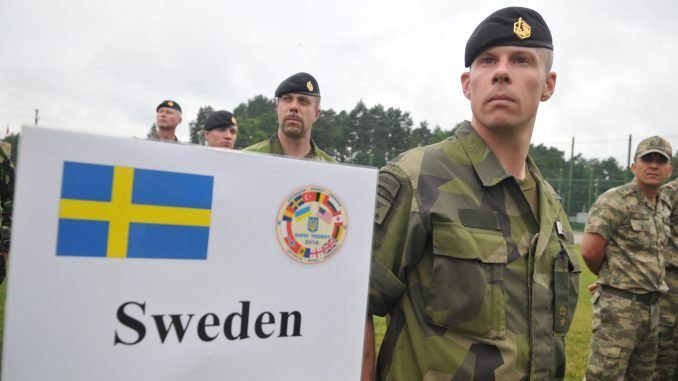
The threat posed by Russia is the most realistic threat facing Sweden today, however the Swedish response, reflected by the country’s defence budget, is held to be inadequate says LRT Radio contributor in Sweden Vaida Meidutė-Strauzdauskienė. “Sweden spends 1.1% of its GDP on defence and no drastic rise in funding is in sight. It is paradoxical that the country spends more on migrants than defence,” notes Meidutė-Strauzdauskienė.
She points out that while the threat of Russia is acknowledged, only information such as a return of a military base to the island of Gotland is available to the public, everything else being labelled “top secret”, leaving society with little information.
Meanwhile Russia has breached Swedish airspace and territorial waters a number of times, with several close encounters of Russian military aircraft and civilian air liners. Meanwhile the Swedish group responsible for cyber defence observes several Russian cyber-attacks on Swedish networks a day. The number of incursions into Swedish territory has constantly risen since 2009, including things such as lacking permits or “slight human errors.”
Inadequate threat response
Meidutė-Strauzdauskienė notes that Sweden spends 1.1% of its GDP on defence and no drastic rise in funding is in sight, quite the contrary, it has been decreasing over the past decade and is relatively the lowest defence budget in the Baltic region.
She explains that the Swedish government has done little to seek a greater budget for defence, despite rising threat levels. Previously the threat level in the country was rated as hardly imaginable, being 2%, but has since risen with the Russian threat to Sweden being rated as unlikely, with a 15% likelihood of assault.
The news media has highlighted the relative vulnerability of the Swedish military, but Meidutė-Strauzdauskienė points out a good example of the political position in Swden, with former Minister of Foreign Affairs Carl Bildt calling such articles fear mongering, pointing out that Russia is more active in the East and has little reason to be interested in Sweden.
The vital island of Gotland – insufficiently defended?
Managing Director of the Baltic Islands Society Derek Bolton wrote a year ago that during recent wargames, the islands of Gotland, Åland and Bornholm have been exceptionally important, precluding reinforcements for the Baltic States if they were captured by hostiles. He observed that the island of Gotland is a crucial location and while Sweden is not a member of NATO, the control of this island would impact the Baltic States which are members of the alliance heavily.
Some experts note that the return of a military base to Gotland is insufficient to obstruct armed aggression, but Eastern Europe Studies Centre Director Linas Kojala is convinced that the symbolic value of militarisation is important in this case, with Sweden having maintained a principle of neutrality for a long time, but after the events in Ukraine having started to drift away from neutrality, with talks of NATO membership intensifying. This is particularly notable given the current leftist government which is more opposed to such a shift than the previous centre right government.
Gotland is no longer a demilitarised zone as it had been in the past and the symbolism is important in this regard, something NATO will not fail to notice observed Kojala.
Not worth to expect NATO membership?
While domestic concern is on the rise and the Russian aggression in Ukraine has left Swedes talking about the potential for NATO membership, V. Meidutė-Strauzdauskienė points out that Sweden currently does not have any plans for NATO membership. This, she states is related with the sufficiency of Swedish-NATO cooperation agreements in maintaining neutrality. As the commentator points out, while it is not official, Sweden is seen to have all the privileges of NATO members and can expect assistance from NATO member states if attacked.
Nevertheless L. Kojala highlights the potential for Swedish NATO membership, despite the difficulties involved. “The country was pushed into a realisation that politically declared neutrality is ineffective when lacking a real basis for defence and protecting neutrality from states which have little concern with the publically declared political position.
Perhaps it is currently hard to expect that Sweden could join NATO, despite the significant rise in support for NATO in polls; all parties have begun talking about the potential for NATO membership. Many dilemmas remain for Sweden however – it is often said that it cannot become a member if Finland does not and vice versa. It is more difficult to imagine the latter pursuing membership,” says L. Kojala.

Be the first to comment